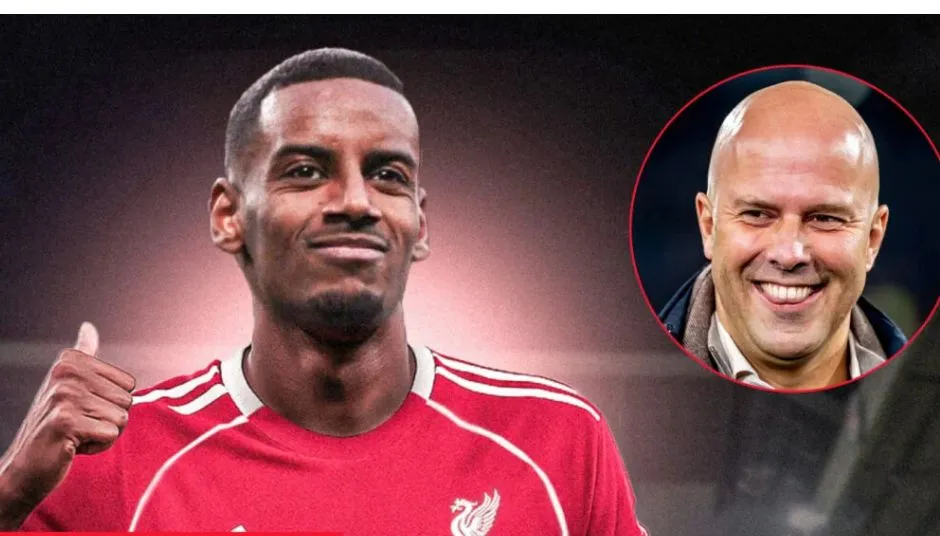Sport
Can FIFA Rules Help Force a Shock Liverpool Move?

A dramatic new chapter has opened in the transfer saga surrounding Newcastle United’s star striker and Liverpool. What once seemed like a straightforward negotiation has now escalated into a tense standoff filled with legal questions, broken promises, and speculation about whether FIFA regulations could come into play to determine the player’s future.
The forward, still tied to Newcastle until 2028, shocked supporters and the wider football world with a scathing Instagram statement. In it, he accused the club of failing to honor key assurances made during contract discussions and boldly declared that “the relationship cannot continue.” For many fans, the post signaled a clear desire to force a way out, igniting rumors of an imminent move to Anfield.
Liverpool had already tested Newcastle’s resolve earlier in the summer, tabling a mammoth £110 million offer. The bid, however, was swiftly rejected, with the Magpies holding firm on their valuation of around £150 million. At the time, many believed the story would fade, but the striker’s recent decision to refuse selection in the goalless draw against Aston Villa has only added fuel to the fire. He has since been training in isolation, further underlining the growing tension.
This unfolding drama has raised a crucial legal question: could FIFA rules actually allow him to walk away from his long-term deal and push through a move to Liverpool? For a fan base hungry for clarity, the answer isn’t simple.
FIFA’s Regulations on the Status and Transfer of Players, specifically Articles 14–17, outline the conditions under which a player can terminate a contract unilaterally. These laws make provisions for “just cause” scenarios, such as persistent non-payment of wages or serious breaches of contract by the club. However, a breakdown in trust, dissatisfaction with playing time, or even disagreements over transfer policy are not enough to meet the threshold.
That means if the striker were to simply tear up his contract without proving just cause, Newcastle would almost certainly demand massive compensation. The compensation could encompass unpaid wages, the cost of signing a replacement, and the player’s current market value. In real terms, such a figure could climb well above nine figures, possibly exceeding even the record-breaking sums seen in recent transfer windows.
The legal consequences wouldn’t stop there. Newcastle could also pursue disciplinary actions, including suspensions or fines, to reinforce their authority. However, clubs often hesitate to impose the harshest penalties on star players, knowing that sidelining such a valuable asset can damage the team’s performance and diminish resale value.
For Liverpool, the situation is equally complex. While they are reportedly eager to strengthen their frontline under Arne Slot, the Reds are wary of being drawn into a prolonged legal battle. A move that hinged on FIFA’s intervention would be fraught with uncertainty, potentially dragging into months of litigation rather than producing a clean, swift transfer. The Anfield hierarchy will know that such instability could disrupt both the dressing room and the player’s focus.
Newcastle, meanwhile, find themselves balancing ambition and pragmatism. On one hand, their refusal to bow to pressure demonstrates strength and a commitment to competing with England’s elite. On the other hand, keeping an unhappy superstar could poison the atmosphere inside the squad and undermine Eddie Howe’s long-term project. The Magpies must now weigh whether cashing in—albeit on their own terms—might be the lesser of two evils.
Beyond the legal and financial implications, this case highlights the growing tension between player power and club control in modern football. Stars are more vocal than ever about their futures, using social media platforms to sway public opinion and put pressure on their employers. Clubs, meanwhile, are increasingly cautious, recognizing that losing control of such situations can set dangerous precedents for future negotiations.
As it stands, the story has become a fascinating blend of football politics, legal strategy, and high-stakes finance. Will it end in reconciliation, with Newcastle convincing their talisman to recommit? Will it spiral into punishments and lawsuits? Or will it culminate in a historic transfer that rewrites the record books and delivers Liverpool the striker they crave?
For now, one thing is clear: this saga is far from over, and the footballing world will be watching closely as FIFA’s regulations, Newcastle’s resolve, and Liverpool’s ambitions collide in one of the most dramatic transfer battles of recent years.

 Sport12 months ago
Sport12 months ago“I’m not trying to criticize Ancelotti, but I’m not happy with him for benching that player”: Bellingham Expresses Frustration Over Ancelotti’s Tactical Decision

 Sport12 months ago
Sport12 months agoBREAKING: Manchester City vs Liverpool Clash Cancelled! Title Race Takes a Twist

 Sport12 months ago
Sport12 months agoArsenal Poised for January Swoop on €70 Million Star Dusan Vlahovic

 Sport12 months ago
Sport12 months agoWHAT ON GOD’S GREEN EARTH DID WE JUST SEE?!

 Sport12 months ago
Sport12 months agoReal Madrid: Carlo Ancelotti’s Surprising Revelations About an Unexpected Quality of Vinicius

 Sport12 months ago
Sport12 months agoBREAKING: Arsenal’s Champions League Quarterfinal Opponent Revealed After Monaco’s Dramatic Win – Tough Challenges Await Arteta’s Men

 Sport12 months ago
Sport12 months agoChelsea Players Facing Suspension as Yellow Cards Mount

 Sport12 months ago
Sport12 months agoKey Arsenal Player Set for Return as Gunners Face Struggling Everton
















